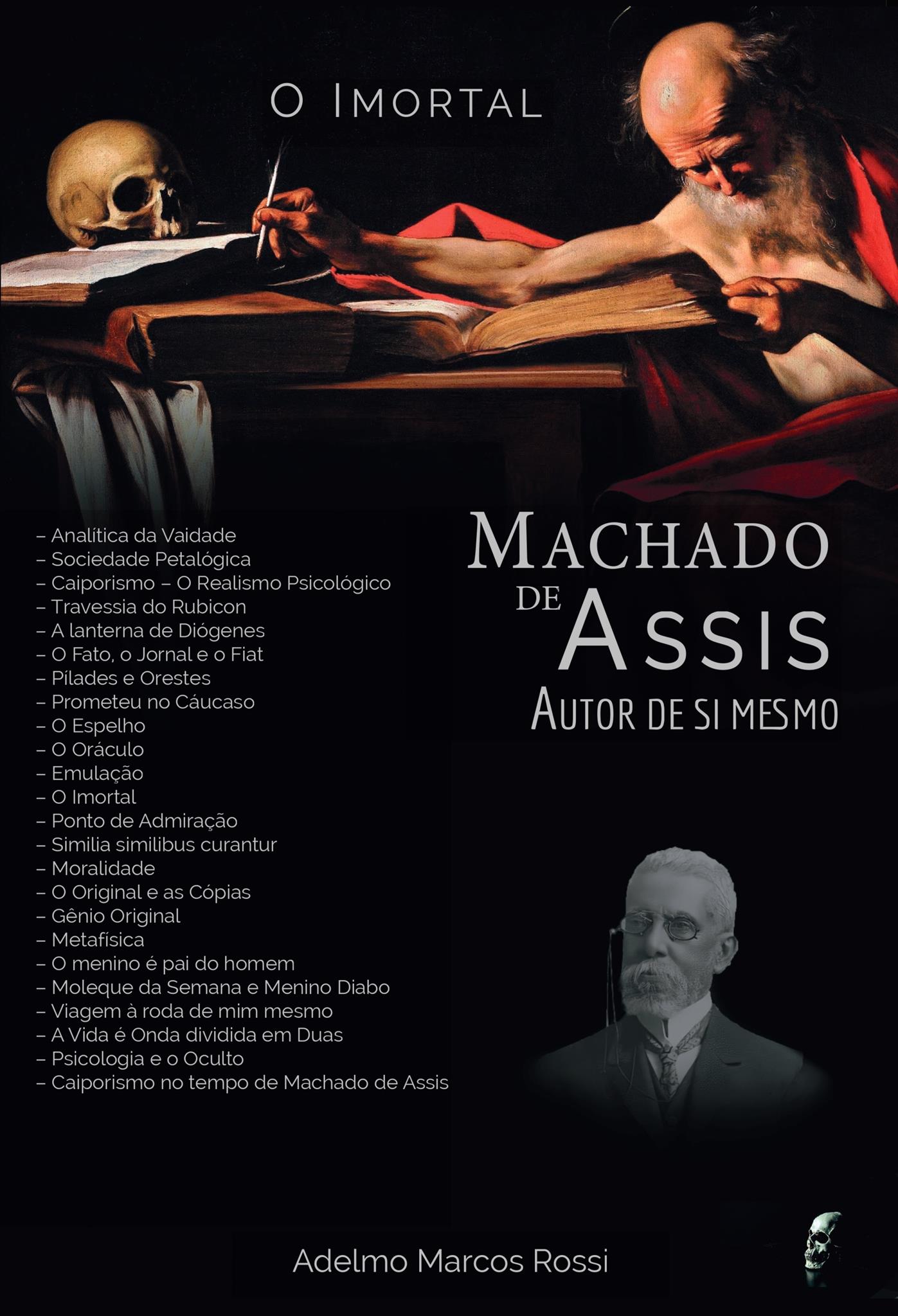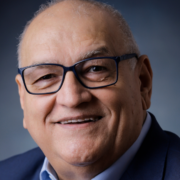Long before Freud formulated the concepts of psychoanalysis, Machado de Assis was already exploring the depths of the human mind and the contradictions of the soul with irony and literary genius. This is the thesis presented by researcher Adelmo Marcos Rossi in the book *The Immortal Machado de Assis – Author of Himself* , in which he reveals the author of *Dom Casmurro* as a precursor of psychoanalysis, decades before Freudian theories.
This work, which follows *The Cruel Philosophy of Narcissism* (2021), offers a detailed analysis of the relationship between Machado de Assis’s literature and the foundations of modern psychology. Spanning over 450 pages, Rossi compares concepts present in Machado’s writing, such as narcissism, repression, and the unconscious, to terms popularized by Freud. The result is an engaging read that unites philosophy, literature, and psychology—revealing that the “Wizard of Cosme Velho” may have understood the human soul long before science named it.
Your research reveals Machado de Assis as a precursor to psychoanalysis, even before Freud. When did you first perceive this connection between Machado’s literary perspective and the clinical perspective on the psyche?
This suspicion has been circulating for quite some time, stemming from the question of whether Freud read Machado or vice versa. In fact, it is Machado who states, in a letter to Quintino in 1862, when he was 23 years old and Freud was 6 years old in Vienna, that he would develop a psychology in the form of literature.
“The Immortal Machado de Assis – Author of Himself” is the result of almost 15 years of study on psychoanalysis. What was it like to delve so deeply into two such complex minds — Machado’s and Freud’s — and make them converse?
It turns out there’s a certain arrogance within the psychoanalytic community, of which I was a part, even teaching a psychoanalysis course, and I moved away from that ideological arrogance, arrogance in the sense of superiority, a certain authority. Just look at the comments in videos and in the books themselves where they analyze everything . Even films! Literary works! Machado de Assis showed psychology in literary form in his descriptions of romantic relationships and relationships of interest, without making any judgments.
You claim that Machado anticipated concepts such as narcissism and healing through speech. Do you believe he had a philosophical awareness of what he was proposing, or was it a stroke of artistic genius?
Generally, one doesn’t have a “philosophical awareness” of one’s own Narcissism, and neither did Freud have this awareness that psychoanalysis involved the Narcissism of his own person seeking social recognition. It was easier for Machado to have this awareness because, from a young age, he chose to be a literary writer, seeing Narcissism as a desire for success and posterity. Freud concealed this desire in a letter to Fliess in 1900, saying that he wanted a marble plaque on his tomb stating that he was the man who solved the enigma of dreams. It didn’t suit him, as a scientist, for the theory to be seen as personal promotion.
The book’s title, “Author of Himself,” suggests that Machado constructed his identity through his own writing. How does this idea relate to the modern concept of self-knowledge and to psychoanalysis?
A simple farmer is also the author of his own life insofar as he takes charge of his own affairs. My father, with his eight children, was such a man; he told me, when I was 15 years old, ‘if I were to narrate my life, it would make a novel,’ because, despite being illiterate and running a small business, he had six children who graduated from UFES (Federal University of Espírito Santo) and two who only completed high school. It is the individual who constructs their own identity and is responsible for it. What Machado teaches is how to do this in the role of a writer: the work is a self-affirmation of identity, of the image, that remains for posterity. The common man also leaves memories, even without writing them down.

Machado de Assis was a Black man, self-taught, and critical of his time. How do these personal experiences influence the psychological and social perspective present in his work?
In my research, I did not find the romanticism that is so often discussed. Researcher Marta de Sena refutes three points on which some commentators base their arguments: (1) Machado was from an intellectual elite; his parents were among the 15% who were literate. In other words, 85% could not read. (2) Morro do Livramento was an upscale neighborhood at the time – Machado never lived in a favela. (3) When he lost his mother at the age of 10, and, as is common, would have been a street vendor, shoeshine boy, or market stallholder, young Machado preferred to join the Paula Brito Society, which produced the Imperial Press and all the cultured press of the time. In other words, curious as only he could be, Machado could read everything that was going to be printed!
Throughout your research, was there any text by Machado de Assis that surprised you with its psychological depth or direct similarity to Freudian concepts?
It’s difficult to choose ONE text. There is one that is quite surprising, and which Machado didn’t even include in a book of short stories. It’s the story ” Journey Around Myself” (1885). Not even Freud had the idea of presenting the inaugural moment in which, in language, the child moves from natural meaning to figurative meaning. This story was collected by Mario de Alencar for the book Other Relics (1910).
Since Machado kept a conceptual book on psychology hidden—a book he himself couldn’t publish because it would, in a way, reveal the secret of his work—I suspect, for my part, that he didn’t publish the novella *Casa Velha* as a book precisely because, in that work, it’s as if Freud were to live within the patient’s family to see firsthand the psychological ills he was treating and would find that they weren’t very different from his own family. In *Casa Velha*, the reverend fulfills this function.
The book engages in a dialogue between philosophy, psychology, and literature. What was the greatest challenge in uniting these fields without losing the charm of Machado de Assis’s writing or the scientific precision of psychoanalysis?
Machado, more than a psychologist and literary writer, is also considered a philosopher. That is to say, he himself united these three fields in his extensive production. And the greatest challenge lies with the reader, in keeping up with him.
After identifying Machado de Assis as a precursor to psychoanalysis, what, in your opinion, would be the next step in this discovery? What new discussions or developments do you hope to inspire with this work?
This book is a first attempt to revisit Machado de Assis from a point of view that he himself expressed in a letter to Quintino in 1862, when he was 23 years old. Being a first version, it contains all the errors and defects inherent in a first attempt. Researchers will undertake to improve this initial draft, adapting it to the appropriate language in the fields of literature, psychology, law, psychoanalysis, and the humanities in general, whether in academic language or in general language, as is the case in Machado’s own literature.
It’s high time Machado de Assis was recognized, as stated by the English researcher John Gledson, a scholar and promoter of Machado’s work. It’s high time our author was recognized as a thinker on the level of Shakespeare, Goethe, Dostoevsky, and so many others. According to Gledson, if Machado were French, English, or Russian, he would certainly be in the gallery of humanity’s great thinkers. The translation of the book into English and French is nearing completion. The research… They continue .
Follow Adelmo Marcos Rossi on Instagram





